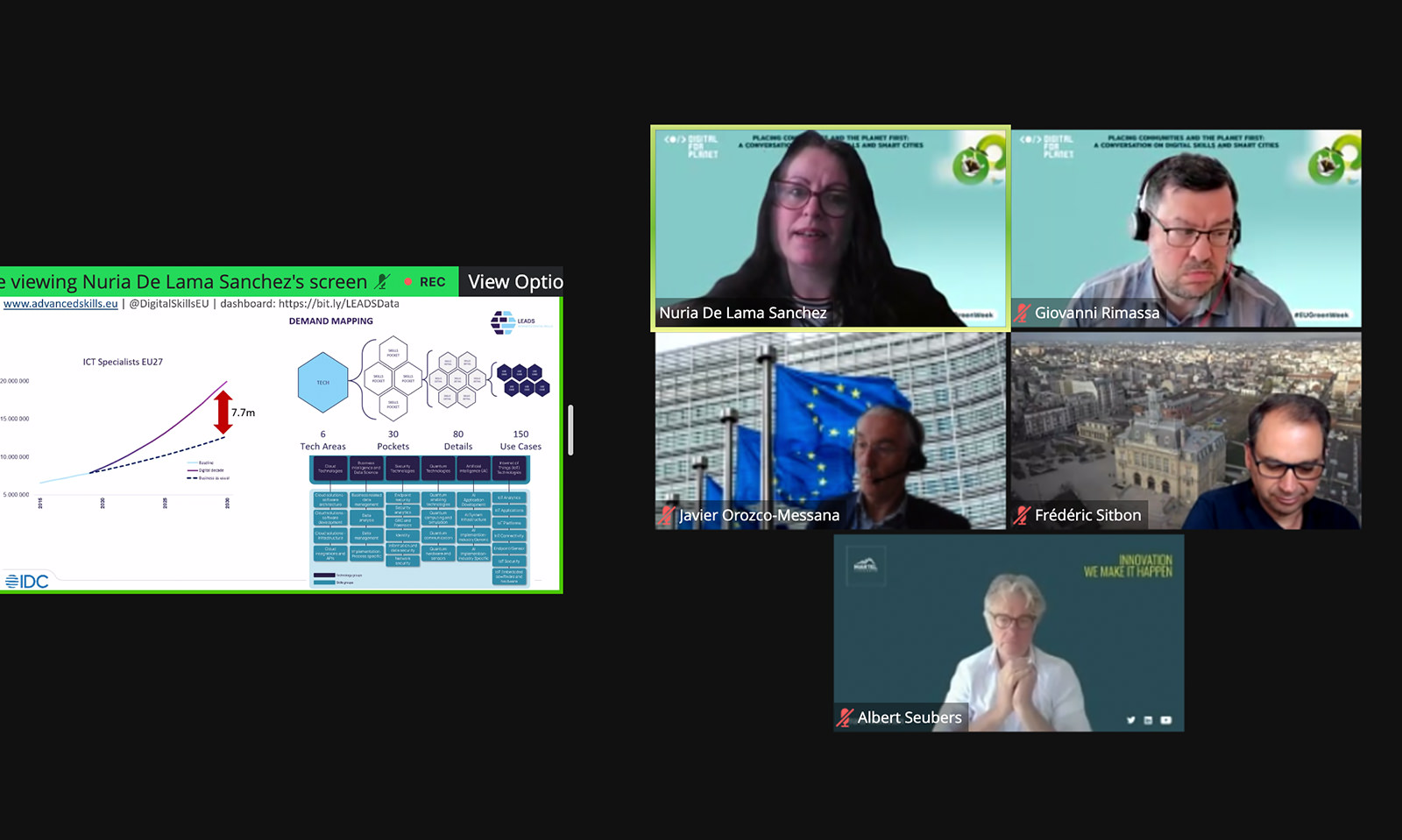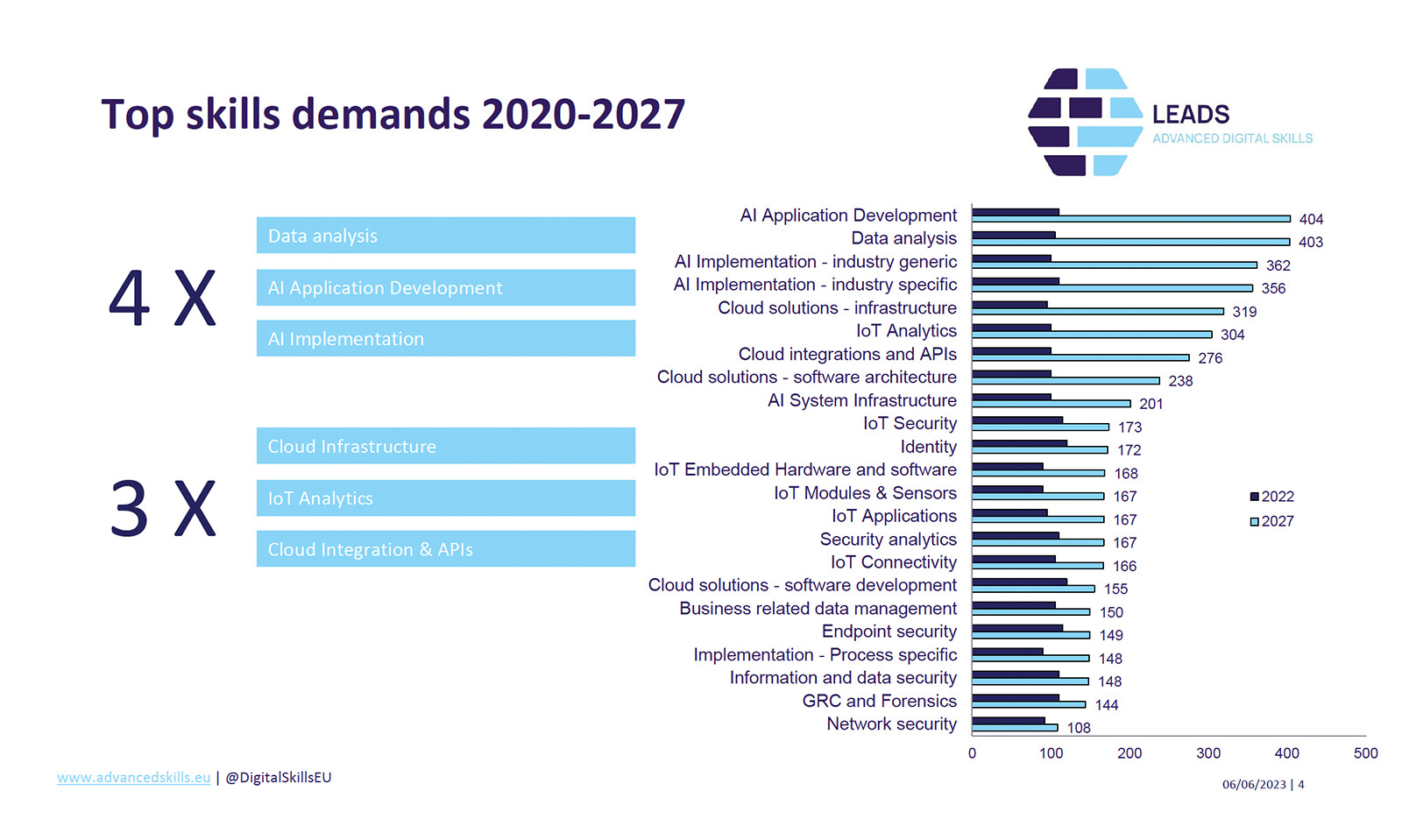On 6 June 2023, LEADS, a leading research project on digital skills, participated in the webinar “Placing Communities and the Planet First: a conversation on digital skills and smart cities” organised by DIGITAL FOR PLANET. Moderated by Giovanni Rimassa, Vice-president of DIGITAL FOR PLANET, the event brought together experts and stakeholders to discuss the crucial role of digital skills in building smart cities.

During the webinar, Nuria De Lama, LEADS Work Package 1 Leader, shared crucial insights on building smart cities through digital skills. Nuria highlighted the diverse range of technologies already present or set to emerge in smart cities in the coming years. These include hybrid workplaces, digital twins, data and artificial intelligence, sustainability, and managing vulnerabilities and cyber attacks. She stressed the importance of innovation skills and the need to assess and address the demand and supply of advanced digital skills in Europe.
To date, LEADS conducted a comprehensive assessment of the demand and supply of digital skills across six technological areas, some of which including cloud computing, data science, artificial intelligence, and the Internet of Things. The project identified 80 essential skills needed in the future and analysed 150 use cases to determine the investment potential and forecasted demand. The assessment, available on LEADS’ website on the DEMAND FORECAST DASHBOARD, provides valuable insights for strategic planning and education in preparation for the future.
Javier Orozco-Messana, Policy Officer at DG Connect – European Commission, also emphasised the importance of collaboration and data sharing in developing a thriving ecosystem for smart communities. He outlined the objectives of the European Data Act, aimed at creating a secure and regular system for sharing data, promoting interoperability, and avoiding vendor lock-in. In a joint effort with stakeholders, The commission is working on the Minimal Interoperability Mechanism (MIM) to facilitate seamless data sharing and create a foundation for future innovations in local digital platforms and AI-based services.

Javier Orozco-Messana, Policy Officer at DG Connect – European Commission, also emphasised the importance of collaboration and data sharing in developing a thriving ecosystem for smart communities. He outlined the objectives of the European Data Act, aimed at creating a secure and regular system for sharing data, promoting interoperability, and avoiding vendor lock-in. In a joint effort with stakeholders, The commission is working on the Minimal Interoperability Mechanism (MIM) to facilitate seamless data sharing and create a foundation for future innovations in local digital platforms and AI-based services.
Javier Orozco-Messana underlined the importance of collaboration and inclusivity, stating, “Sharing data and developing interoperable platforms is key to unlocking the potential of smart communities. By avoiding vendor lock-in, we foster a powerful ecosystem of developers, preserving future possibilities for local digital platforms.”
Nuria De Lama summarised the significance of LEADS research, stating, “Our data-driven insights help companies prepare strategic plans for training and education, enabling them to meet future digital skill requirements accurately. Strategic plans on skills development are crucial for properly deploying these technologies based on European values.“
This webinar, moderated by Giovanni Rimassa, concluded the pressing need for digital skills development and collaborative efforts to ensure sustainable and inclusive smart cities of the future.
